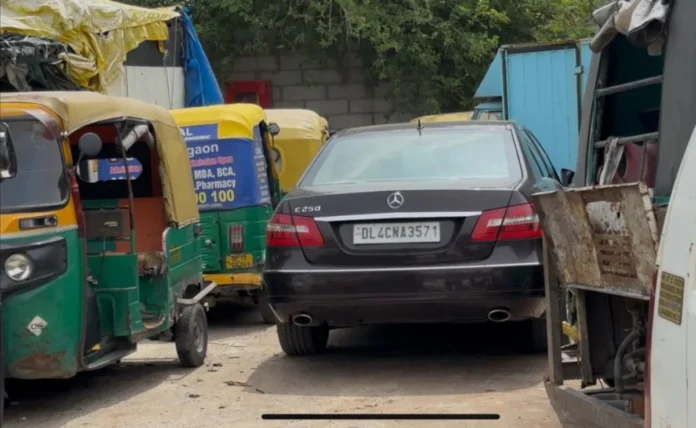In a significant reversal of its earlier stance, the Delhi Government has officially announced that it will not go ahead with the controversial plan to forcibly scrap old private vehicles, including cars and two-wheelers. The decision comes in response to mounting public pressure, widespread protests, and a growing backlash from vehicle owners across the national capital.

The now-shelved proposal was part of a broader environmental initiative aimed at curbing vehicular pollution in Delhi. It sought to enforce mandatory scrapping of petrol vehicles older than 15 years and diesel vehicles older than 10 years, even if these were in good condition and passed pollution checks. However, the plan faced stiff resistance from the public, especially middle-class and working families who depend on older vehicles for daily mobility.
Public Anger Forces U-Turn
In the past few weeks, thousands of citizens took to social media, community forums, and public meetings to voice their frustration over what they called an “unfair” and “anti-poor” decision. Several civil society groups and resident welfare associations (RWAs) criticized the policy for targeting law-abiding vehicle owners who could not afford to replace their vehicles overnight.
Protesters argued that scrapping mechanically sound vehicles was economically unsustainable and environmentally questionable, given the carbon footprint of manufacturing new vehicles. They demanded an alternative framework that allowed continued use of such vehicles with stringent emission checks, instead of blanket bans.
Government Clarifies Stand
Delhi Transport Minister Kailash Gahlot, in a press briefing, acknowledged the strong public sentiment and confirmed that the government had decided to halt implementation of the mandatory scrapping order.
“We have listened to the people of Delhi. The government will not proceed with the scrapping of old private vehicles as previously proposed. Our aim is to balance environmental goals with public welfare, and we will work on a revised policy that is practical and inclusive,” he said.
The minister also stated that while efforts to reduce pollution would continue, they would be pursued through incentives, cleaner fuels, public transport upgrades, and voluntary vehicle retirement schemes rather than coercive methods.
Impact on Vehicle Owners
The rollback of the policy has brought relief to lakhs of vehicle owners in Delhi-NCR who were facing the prospect of losing their vehicles despite maintaining them in good condition. Owners of older cars and bikes now have a reprieve, though authorities are expected to continue enforcing pollution control norms and fitness certifications more strictly.
Some legal provisions under the National Green Tribunal (NGT) and Supreme Court directives still prohibit the use of diesel vehicles older than 10 years and petrol vehicles older than 15 years in the capital. However, implementation is likely to be moderated with greater flexibility and exceptions.
Expert Opinions and Future Strategy
Environmental experts are divided over the government’s decision. While some believe that scrapping old vehicles is necessary to fight air pollution, others argue that emissions can be better controlled through regular inspections, retrofitting of emission-control devices, and broader adoption of electric vehicles.
The Delhi government is now reportedly working on a revised green mobility framework that will include:
-
Incentives for switching to electric vehicles (EVs)
-
Strengthened pollution checks and compliance monitoring
-
Voluntary scrappage incentives instead of mandatory rules
-
Upgrades to public transport infrastructure
The withdrawal of the vehicle scrappage mandate marks a rare case of public activism shaping transport policy in India’s capital. It highlights the importance of balancing environmental goals with the economic realities of citizens and the need for participatory governance.
As the government reassesses its strategies, Delhi’s pollution crisis remains a priority—one that will now be tackled with a more collaborative and pragmatic approach.




